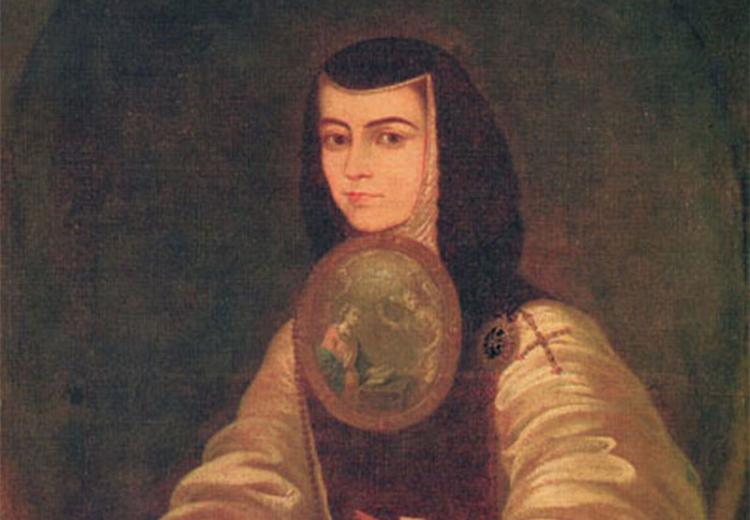Sor Juana Inés de la Cruz: The First Great Latin American Poet

Sor Juana Inés de la Cruz portrait made by Fray Miguel de Herrera.
“It turned out that the hair grew quickly and I learned slowly. As a result, I cut off the hair in punishment for my head’s ignorance, for it didn’t seem right to me that a head so naked of knowledge should be dressed up with hair, for knowledge is a more desirable adornment.”
—from The Reply to the Very Illustrious Sor Philotea de la Cruz, written in 1691
Sor Juana Inés de la Cruz is considered the first great Latin American poet and one of the most important Hispanic literary figures. She wrote following the complex style of the Spanish Golden Age masters, particularly Luis de Góngora y Argote, and produced some of the most beautiful sonnets in the Spanish language, while excelling also as a dramatist. To learn more about Sor Juana, students and teachers can consult the EDSITEment-created timeline of her life.
Sor Juana was published in different parts of the Hispanic world during her lifetime and she enjoyed the reputation of being the premiere Baroque poet in New Spain (Mexico), which earned her both praise and vicious misogynistic attacks. Sor Juana was persecuted for being an intellectual and a woman, a nun, and a writer who wrote quite provocatively in the very Christian New Spain of the 1600s. The two lesson plans in this academic unit will introduce students to the life of Sor Juana and to some of her work. Students will gain an understanding of why Sor Juana Inés de la Cruz is considered one of the most important poets of Latin America, and why she is also considered a pioneering feminist writer and poet.
This curriculum is intended for students with advanced Spanish proficiency.
(Click here for the Spanish version of this curriculum unit)
Guiding Questions
Who was Sor Juana Inés de la Cruz and why is she considered one of the most important poets of Latin America?
Why are Sor Juana’s writings considered groundbreaking documents on women’s rights and women’s place in the New World Colonial society, particularly in regards to education and writing?
Learning Objectives
Learn about a key literary figure in Hispanic literature and learn about the Spanish Golden Age (the Baroque)
Understand the works of Sor Juana Inés de la Cruz in their social, historical, and cultural contexts
Practice oral and verbal comprehension in Spanish, as well as learn how to think, read, and write critically about literature
